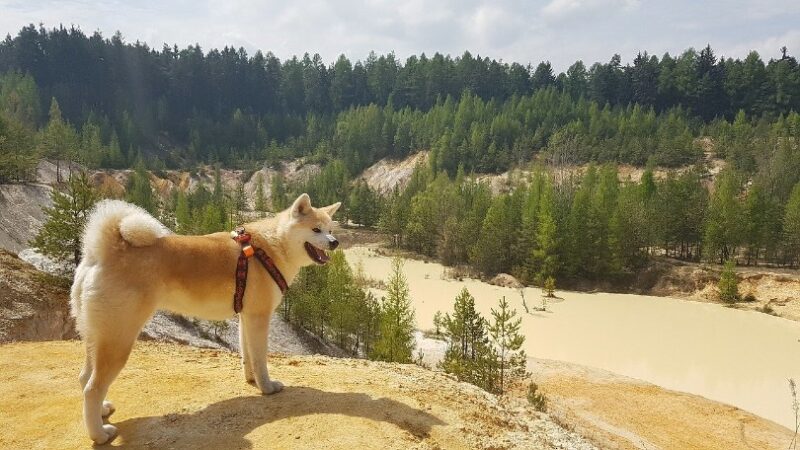Dogs are one of, if not the most, popular animals taken as pets in the world. Dogs are intelligent, loyal, full of personality, and gracious creatures. Like most countries in the world, dogs are very popular pets in Japan. But where does the love of dogs come from? Do these dogs have a rich history in Japan?
Here, we explore the rich history of dogs in Japan to see how they fit into Japanese society!
The Japanese Dog
In Japan, dogs are known as Inu. Common Japanese Inu breeds include the Japanese Spaniel, Akita, Shiba, and Tosa. Dogs are highly regarded in traditional folk religion and Buddhism in Japan. They are often represented as defenders of man as they are believed to have the power to ward off evil spirits. A lot of Japanese architecture may include statues of dogs due to this belief. In the Edo Period, the Shogun Tokugawa Tsuneyoshi was known as (or even ridiculed as) the “Inu Shogun” due to his extreme regulations on dogs during his time as shogun.
Dogs have a rich history in Japanese literature and culture. Many dogs appear in Japanese literature, such as the folktale Hanasaka Jiisan (The Old Man Who Made Withered Trees Bloom) and the story Jino Yomenu Inu (The Dog That Can’t Read).
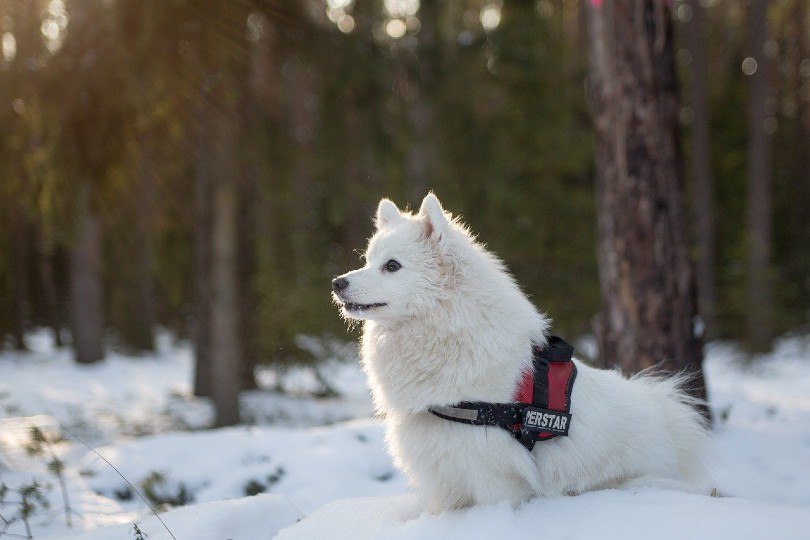
Dogs in Japanese Legend
There are multiple legends involving dogs in Japanese, showcasing how the Japanese people regarded Inu in their culture. Here are some popular stories of Inu in Japanese legend.
Guardian Lion Dogs
You may notice sculptures and statues of lion dogs at the entrance of Buddhist temples. These statues are called komainu, and this is due to a legend that tells the story of Buddha and his lion dogs. When Buddha travels, he is often accompanied by his small dogs that transform into lions when he requires protection.
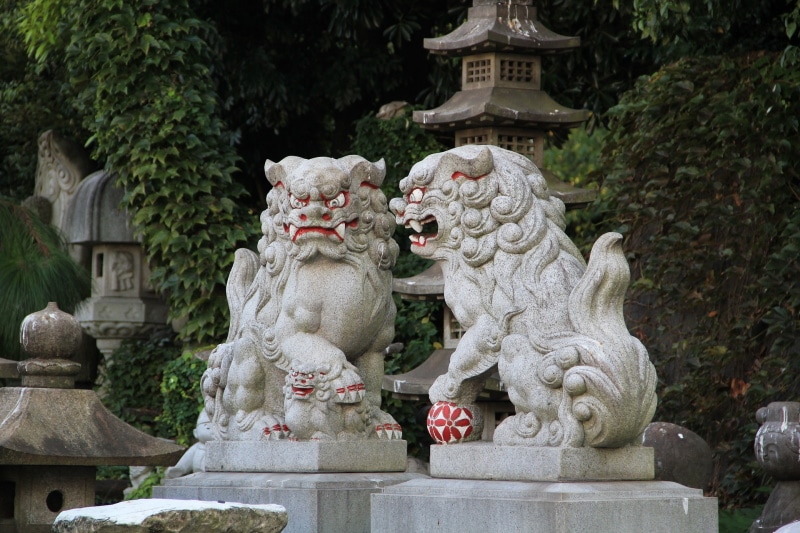
The Japanese Spaniel
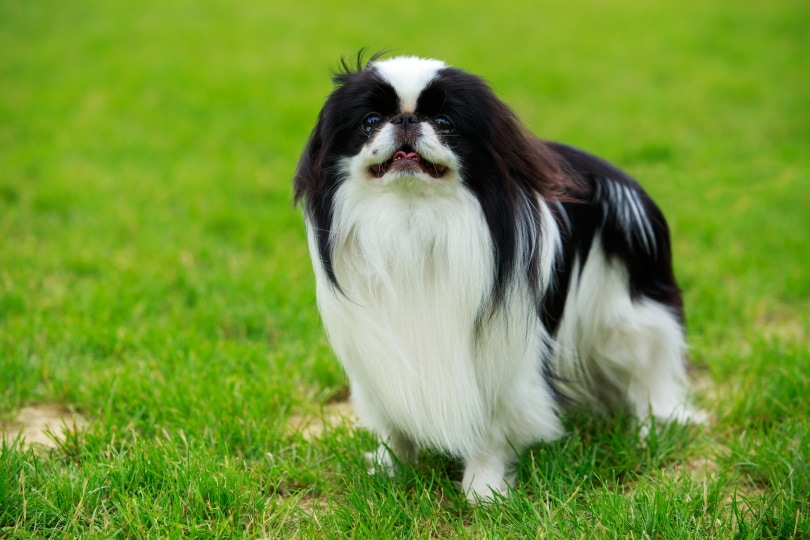
The tiny Japanese Spaniel is a breed of dog that has been considered sacred in Japanese history for centuries. This dog, however, has a very unusual origin story in Buddhist legend.
A lion once fell in love with a small monkey. Due to their obvious differences, they both could not be together. Desperately in love, the lion sought the Buddha for advice. The Buddha offered a solution but warned that this came with a great price. At the cost of his size, strength, and status as a lion, the lion agreed, which allowed him to be with the small monkey. This union of lion and monkey gave birth to the Japanese Spaniel we know and love today.
The Akita-Inu
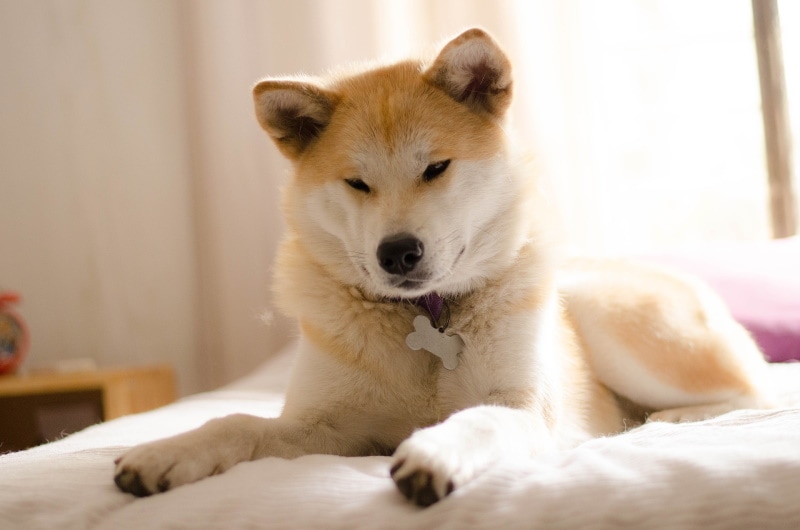
There is a story that teaches a lesson about envy involving an Akita-Inu. The story is about a kind, elderly couple with a pet Akita-Inu. One day, the dog kept barking and digging in a spot in the garden, pushing the old man to dig. The old man dug up a treasury of precious stones and brought it back home. The old couple’s neighbor saw the stones and asked where they came from, and the couple lent the neighbor the Akita-Inu to help him find treasure. The neighbor took the dog and dug at the designated spot and found only snakes and worms. In a rage at what the dog led him to find, he killed the dog, buried it, and stuck a willow twig on the ground at the site where it was buried.
The story continues with other events involving the old couple and the envious neighbor, but it begins with the Akita-Inu leading the old couple to treasure.
Domestication of Dogs in Japan
Pet ownership in Japan was predominantly utilitarian in nature. Although now, pets are beginning to be considered as part of the family. Dog domestication dates back to around 10,000 BC during the Jomon period. The first dogs entered the Japanese archipelago through migration from continental Asia. Domesticated dogs came from the wolf family, which originally inhabited Eurasia and North America. These wild dogs are considered the ancestors of all domesticated dogs around the world, including Japan.
The Love for Dogs
In recent years, there has been a boom in the love of dogs in Japan. Adoption of dogs in Japan is easy, and they can be easily bought from health or adoption centers. Dogs provide a convenient form of companionship for the Japanese people, and many Japanese families even consider them as part of the family. Dog care services are also easily accessible, with many local veterinary centers within walking distance from homes.
Because of Japan’s crowded environments, many dog owners choose smaller breeds as pets to compensate for the lack of space. The most popular dog breed is the Shiba-Inu because of their size and lifespan of up to 15 years. The Shiba-Inu is a friendly and intelligent dog, making it a favorite and long-lived companion.
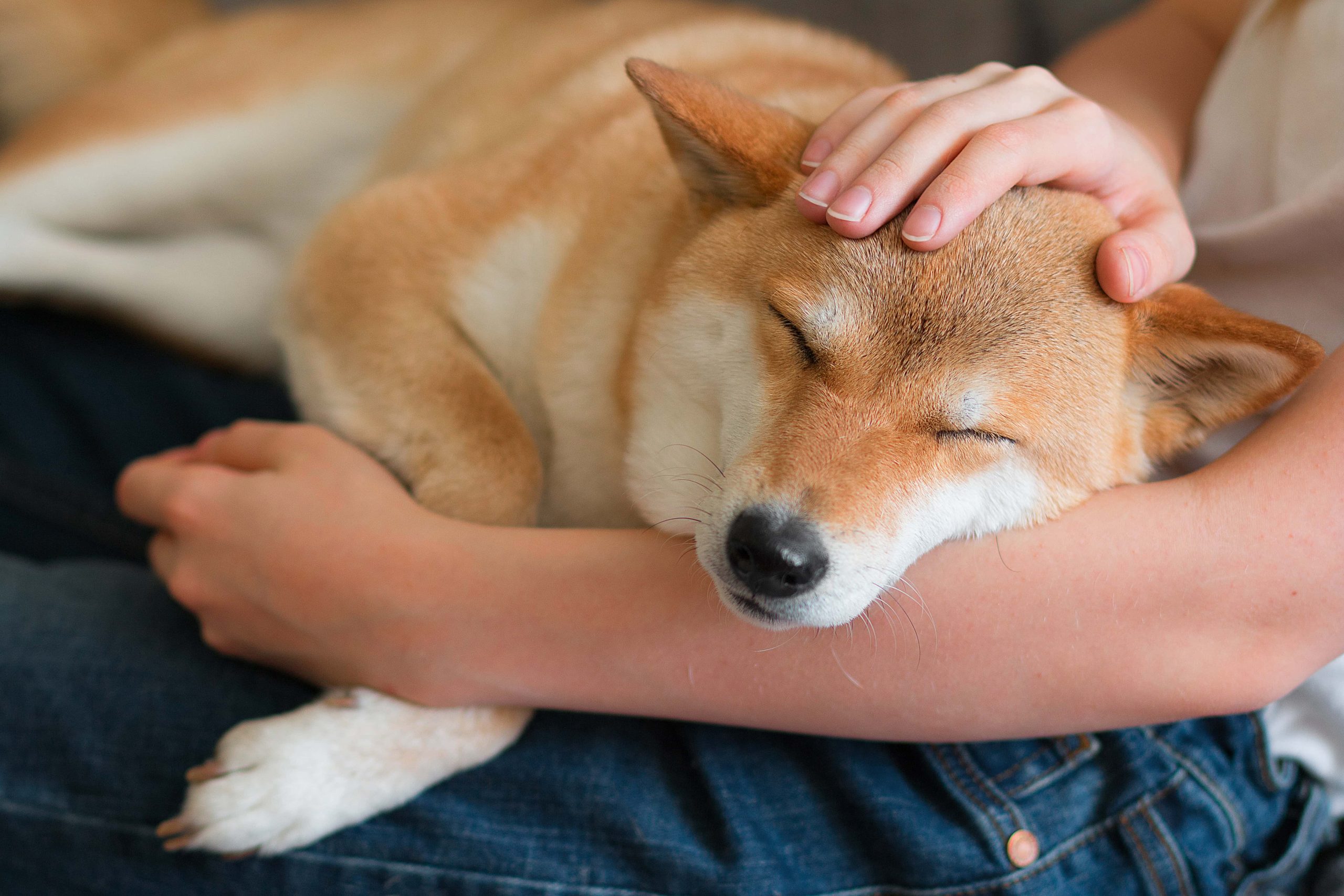
Couples with no children are also known to pamper their pet dogs as if they were their own children. Some hotels and establishments even allow customers to bring their fur babies with them. Most restaurants and cafes even provide a special menu for dogs.
Therapy dogs also play a huge role in helping the elderly and the disabled. Some organizations exist in Japan that train therapy dogs for nursing homes and hospitals.
Hachiko: A Story of Loyalty
In Shibuya Station in Tokyo, you will find a bronze statue of an Akita-Inu named Hachiko. Hachiko’s story is one of loyalty and is well-known to everyone in Japan. In the 1930s, Hachiko would wait for his owner in Shibuya station every day at 3 PM for his owner to return from work. After a year and a half of doing this, Professor Ueno suffered a stroke at work and passed away. Hachiko continued his routine at the same time in the same place every day for over nine years, faithfully waiting for his owner to return.
Hachiko passed away on March 8, 1935, outliving his beloved owner by nine years. Hachiko became a popular symbol of loyalty, faithfulness, and devotion. The dog’s body was placed in a museum, and Hachiko was immortalized by a bronze statue in Shibuya station.
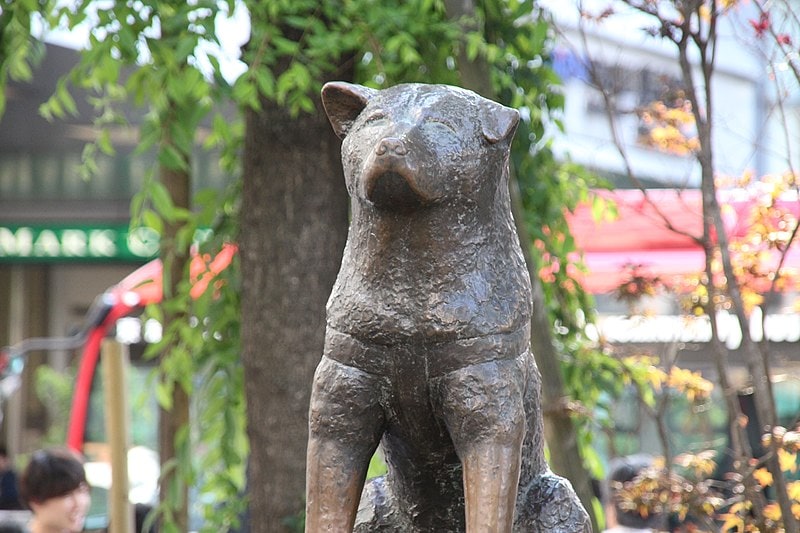
Conclusion
Dogs are well-loved animals in Japan, with people treating pet dogs as members of the family. They also have a rich presence in Japanese culture, often being portrayed as loyal companions and protectors against evil.
Whether through stories passed down across the generations or through having a fur baby companion of your own, dogs are sure loyal, loving, and excellent pets in Japan.
See Also:
- How to Stop Dog Seizures: Our Vet Discusses Causes & Treatments
- Akita vs Shiba Inu: Differences Explained (With Pictures)
Featured Image Credit: Jupigo, Pixabay

